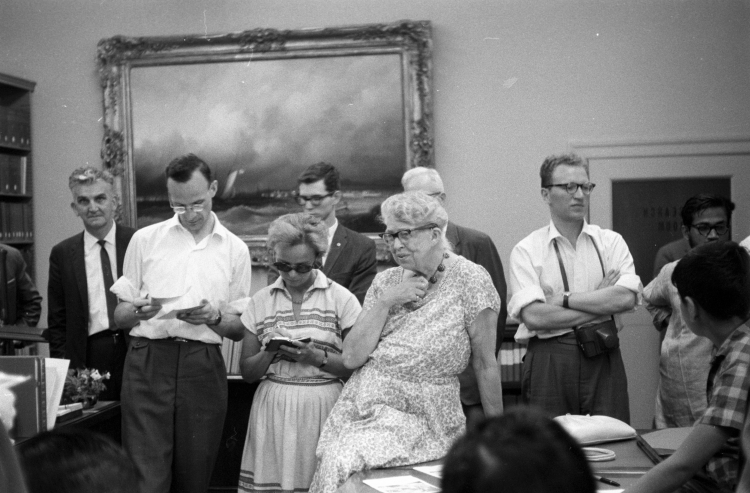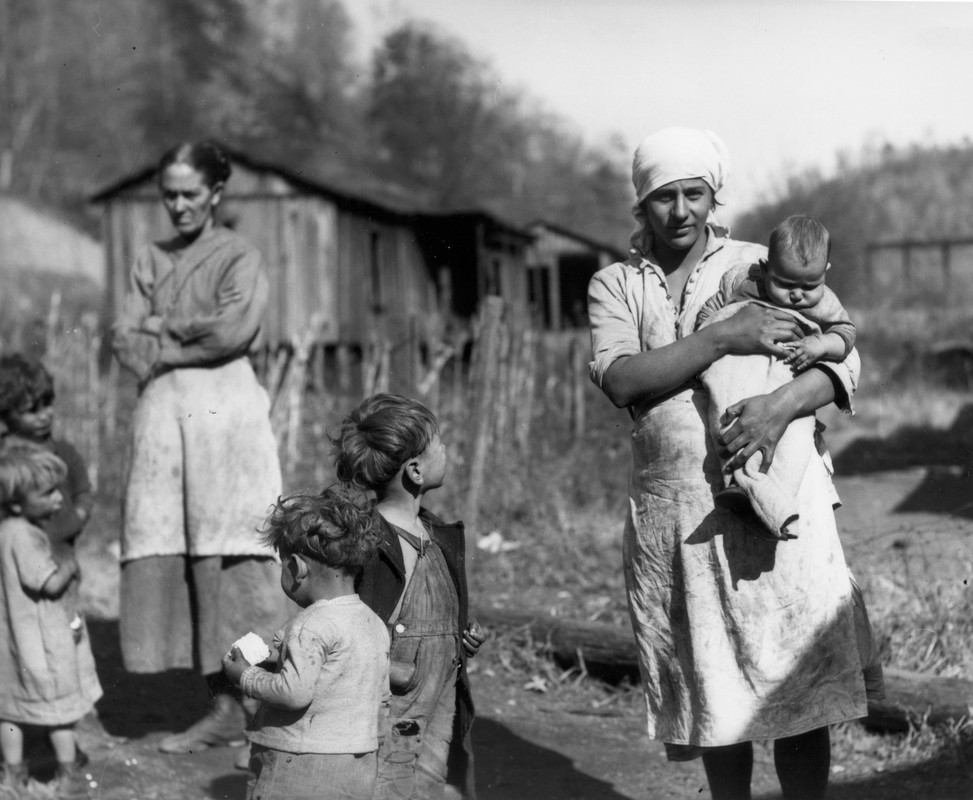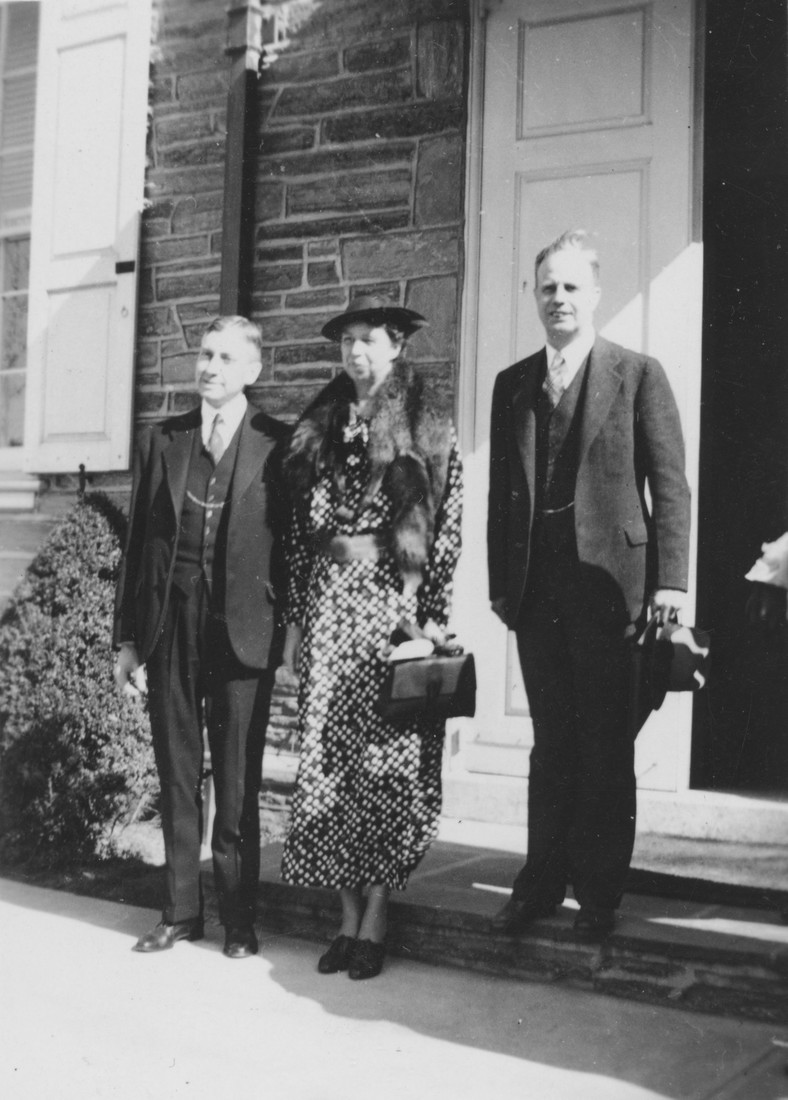
Eleanor Roosevelt's visit to AFSC. Photo: AFSC
"When I found that I could earn a certain amount of money on the radio, I realized that the American Friends Service Committee was doing work of the type which I was most interested in." said Eleanor Roosevelt in an April 1935 radio talk. True to her word, she donated much of the money she earned from her radio broadcasting and newspaper column to the American Friends Service Committee.
The Roosevelts' first involvement with AFSC
Eleanor Roosevelt's association with the AFSC began before Franklin Roosevelt's inauguration in March 1933. The AFSC had started a child feeding program in the coal mining areas of Pennsylvania and West Virginia in 1931, at Herbert Hoover's request. He supplied money from a nongovernmental source for the program. In late 1932, Clarence Pickett, then executive secretary of the Service Committee, was invited to be an overnight guest at the Roosevelt home in Hyde Park. The Roosevelts were acquainted with the AFSC's work in coal-mining areas and wanted to talk with Clarence Pickett about the plight of miners in the bituminous coal fields, the conditions under which they lived, and the AFSC's efforts in vocational reeducation and subsistence living projects.

AFSC's work in West Virginia's coal mining regions in the 1930s. Photo: AFSC Archives
Following his inauguration, President Roosevelt promoted a host of bills to address problems of the Depression. Among the bills was one that established a subsistence homestead fund, which interested Eleanor Roosevelt. When Clarence Pickett was appointed chief of the Stranded Mining and Industrial Populations Section in the Department of the Interior, he and Eleanor Roosevelt became associated with a project in West Virginia called Arthurdale.
Eleanor Roosevelt and Clarence Pickett's collaboration
Eleanor Roosevelt's private contributions to the Arthurdale Subsistence Homestead Project were substantial, particularly in the area of public education. She and Clarence Pickett traveled to Arthurdale and other areas of West Virginia and Kentucky on many occasions to observe conditions and to encourage and promote projects that addressed the deplorable conditions.

Eleanor Roosevelt and Clarence Pickett. Photo: AFSC Archives
Eleanor Roosevelt and Clarence Pickett respected and admired one another. She liked Pickett, whom she considered without vanity or personal ambition, and she liked the way Quakers put their faith into action with good deeds, rather than focusing on theological disputation. "I am no believer in paternalism. I do not like charities," she said. The crucial need in her view was "for some drastic changes in our rather settled ideas that should provide equality of opportunity for all and prevent the recurrence of a similar disaster (depression) in the future."
Eleanor Roosevelt's continuing support for AFSC
The early work in the coal fields established a lasting relationship between the AFSC and Eleanor Roosevelt. Time after time she would write to the Service Committee, enclosing letters she had received from people who requested assistance. She would ask if there were a Quaker living in the same vicinity from which the petitioner wrote who could ascertain the legitimacy of the request. Then the AFSC would look for someone to discreetly investigate and report back to her. When her schedule allowed, she would make appearances at youth gatherings sponsored by the Service Committee or at discussions about integrated housing, long after she was no longer first lady.
"…I feel great confidence of the work of this Committee not only here but in European countries, and I hope that they will continue to allow me to work with them and to develop projects which are of mutual interest to both of us."
—Written by Jack Sutters, former AFSC archivist